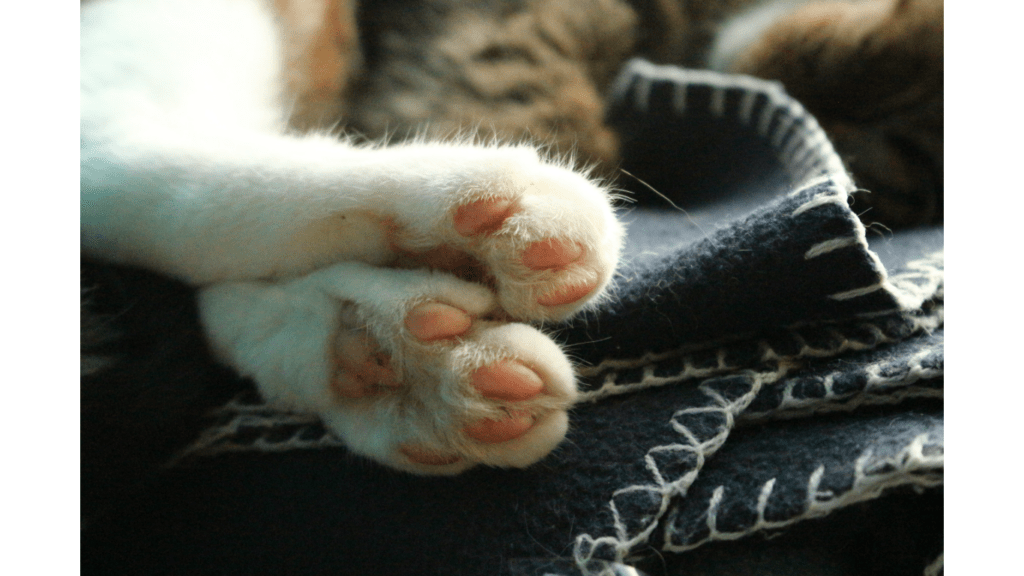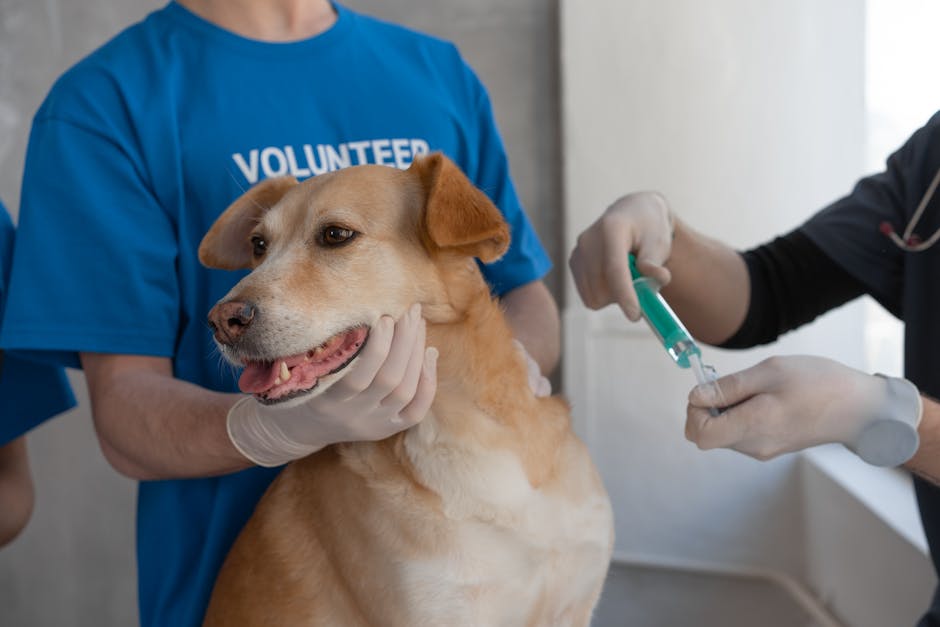Understanding Your Pet’s Needs
Physical Health Essentials
Maintaining my pet’s physical health is a top priority for me. I ensure they have a balanced diet tailored to their species and age. Regular visits to the veterinarian for check-ups and vaccinations are crucial for preventing illnesses. Additionally, I provide plenty of opportunities for exercise to keep them fit and healthy. Whether it’s daily walks, interactive play sessions, or visits to the park, staying physically active is vital for my pet’s well-being.
Emotional Well-Being
Understanding my pet’s emotional well-being is essential for their overall happiness. I create a safe and comfortable environment at home, offering them a cozy bed, toys for mental stimulation, and a designated space to retreat when they need privacy. Spending quality time together through cuddles, training sessions, or simply being present helps strengthen our bond and ensures my pet feels loved and secure. I also pay attention to their behavior and body language to address any signs of stress or anxiety promptly. By nurturing their emotional needs, I contribute to a fulfilling and content life for my beloved pet.
Creating a Safe Environment
Pet-Proofing Your Home
Ensuring a safe environment at home is vital for the well-being of our furry friends. When pet-proofing your home, it’s important to remove any potentially harmful items, such as small objects that could be choking hazards or toxic plants that pets might ingest. Securing cabinets that contain cleaning products and keeping electrical cords out of reach are also essential steps. Baby gates can be useful to restrict access to certain areas, especially for young or curious pets.
The Great Outdoors: Balancing Freedom and Safety
When it comes to outdoor activities, balancing freedom and safety is key. Providing a secure outdoor space or taking pets on leashed walks allows them to enjoy the outdoors safely. Regularly inspecting the area for any potential hazards like sharp objects, toxic plants, or openings in fences is crucial. It’s important to supervise outdoor time to ensure that pets don’t get into mischief or come into contact with harmful substances. By combining freedom with safety measures, we can create a happy and secure environment for our pets to thrive.
Nutrition and Diet
- When it comes to caring for our furry friends, providing them with proper nutrition is paramount. As a responsible pet parent, I understand the importance of choosing the right food for my pet. It’s essential to opt for high-quality pet food that meets their specific dietary needs.
Choosing the Right Food
- I prioritize selecting pet food that is tailored to my pet’s age, size, and breed. Each pet has unique nutritional requirements, so I make sure to read the labels carefully and choose food that provides a well-balanced diet. I always consult with my vet to ensure I’m making the best choice for my pet’s health.
Treats and Supplements
- In addition to their regular meals, I also consider the treats and supplements I give to my pet. Treats should be given in moderation and be suitable for my pet’s dietary restrictions. When it comes to supplements, I consult with my vet to determine if they are necessary for my pet’s overall well-being. I aim to provide my pet with a healthy and balanced diet to keep them happy and thriving.
Training and Socialization
1. Basic Training Commands
When it comes to Basic Training Commands, consistency and positive reinforcement are key. It’s essential to start with simple commands like “sit,” “stay,” and “come” to establish communication and obedience with your pet.
I recommend training sessions that are short and frequent to keep your pet engaged and prevent them from getting bored. Using treats or favorite toys as rewards can motivate pets to learn and respond to commands effectively.
In my experience, patience is crucial during training. Each pet learns at its own pace, so it’s important not to rush or become frustrated if progress is slow. Celebrate small victories and remain consistent in your training approach for best results.
2. Socializing Your Pet with Others
Socializing your pet with other animals and humans is vital for their development and well-being. Starting early and exposing your pet to various environments, sounds, and smells can help them become more comfortable and confident in different situations.
I’ve found that positive experiences during socialization can prevent fear or aggression towards strangers, other pets, or new environments. Encourage interactions with friendly dogs, people of all ages, and different surroundings to help your pet adapt and feel at ease.
Remember, socialization is an ongoing process, so continue to expose your pet to different experiences regularly to ensure they remain friendly, well-adjusted, and happy in various settings.
Regular Health Checkups and Preventive Care
The Importance of Vet Visits
When it comes to ensuring the well-being of our furry companions, vet visits play a crucial role. Scheduling regular check-ups with a veterinarian is essential for maintaining your pet’s health. These visits allow the vet to assess your pet’s overall condition, catch any potential health issues early on, and provide necessary preventive care. By staying proactive with vet visits, I ensure that my pet receives the best possible care and stays healthy and happy for years to come.
Vaccinations and Parasite Control
Vaccinations and parasite control are integral parts of preventive care for pets. Vaccinations help protect our pets from serious diseases that can be life-threatening. It’s important to follow the recommended vaccination schedule provided by your veterinarian to ensure your pet is fully protected. Additionally, regular parasite control, including flea and tick prevention, deworming, and heartworm prevention, is essential for your pet’s health and well-being. By staying up to date on vaccinations and parasite control, I keep my pet safe from harmful infections and diseases.
Exercise and Play

Daily Exercise Guidelines
- When it comes to pet care, ensuring they get enough exercise is crucial for their overall health and well-being. I recommend that you aim for at least 30 minutes of physical activity every day for your furry friend. Activities such as brisk walks, interactive play sessions, or even a game of fetch are great ways to keep your pet active and engaged.
- Regular exercise not only helps in maintaining a healthy weight for your pet but also promotes good cardiovascular health, strengthens muscles, and improves their overall mood. It’s essential to tailor the exercise routine based on your pet’s breed, age, and fitness level to ensure they get the right amount of activity without overexerting themselves. If you’re unsure about the appropriate exercise level for your pet, consult with your veterinarian for personalized recommendations.
Fun Activities and Mental Stimulation
- In addition to physical exercise, mental stimulation is equally important for your pet’s overall happiness and mental well-being. Engaging your pet in fun activities that challenge their minds can help prevent boredom, reduce anxiety, and strengthen the bond between you and your furry companion.
- Consider incorporating puzzle toys, interactive games, training sessions, or even hide-and-seek games to provide mental stimulation for your pet. These activities not only keep your pet entertained but also boost their cognitive abilities and problem-solving skills. Remember to rotate the toys and activities regularly to keep things exciting and engaging for your pet.
The Bonding Experience
Quality Time and Affection
To strengthen the bond with your pet, spend quality time together. Show them love and affection through cuddles, playtime, and positive reinforcement. It’s essential to create a nurturing environment where your pet feels safe and loved. By investing time in bonding activities, you’ll deepen your connection and trust with your furry companion.
Understanding and Responding to Pet Behavior
Understanding your pet’s behavior is key to building a strong relationship. Pay attention to their body language, vocalizations, and habits to interpret their needs and emotions. Respond to their cues promptly and positively to foster a sense of security and understanding. By communicating effectively with your pet and addressing their behavior in a compassionate manner, you’ll establish a harmonious and fulfilling bond.
Pawsome Parenting Success Stories
Inspirational Tales from Pet Owners
As a seasoned pet blogger, I’ve come across countless heartwarming stories from dedicated pet owners that exemplify the true essence of pawsome parenting. One memorable story is about Bella, a rescued mixed breed pup who transformed from a shy and anxious dog into a confident and loving companion. Bella’s owner, Sarah, poured her heart and soul into building trust and providing a nurturing environment, demonstrating the power of patience and unconditional love in shaping a pet’s well-being.
Another inspiring tale comes from Mark, who adopted a senior cat named Whiskers. Despite Whiskers’ age and health challenges, Mark’s unwavering commitment to providing specialized care and creating a comfortable space for his feline friend not only prolonged Whiskers’ life but also brought immense joy and companionship to both of them. These narratives serve as testaments to the profound bond that forms between pet parents and their furry friends through dedicated care and unwavering devotion.
Expert Insights on Raising Happy Pets
Drawing from my interactions with seasoned veterinarians and pet behaviorists, I’ve gathered valuable insights on raising happy pets that I’m excited to share with you. According to Dr. Smith, a renowned veterinarian, a key aspect of pawsome parenting is establishing a routine that includes regular exercise, mental stimulation, and a balanced diet tailored to your pet’s specific needs. Consistency in feeding schedules and playtime routines promotes physical health and mental well-being in pets.
Likewise, Dr. Johnson, a respected pet behaviorist, highlights the importance of positive reinforcement training techniques in fostering good behavior and strengthening the bond between pets and their owners. By rewarding desired behaviors with treats, praise, or playtime, pet parents can encourage their furry companions to learn and thrive in a loving environment. Understanding your pet’s unique personality traits and preferences is essential for tailoring training methods that align with their individual needs.
By incorporating these expert insights into your pawsome parenting journey, you can create a nurturing and enriching environment for your pets, paving the way for a lifetime of love, happiness, and cherished memories.


